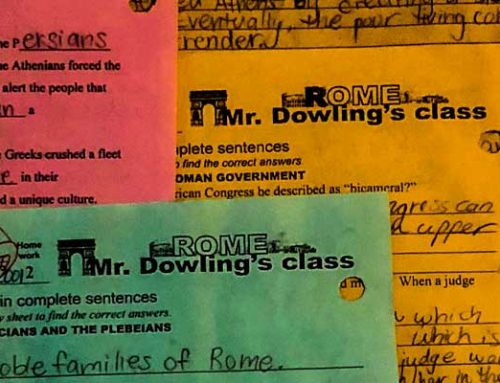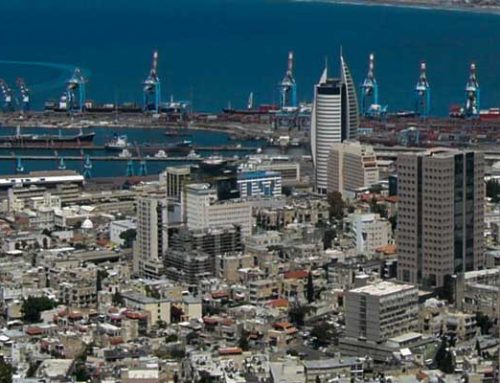Ottoman sultans ruled Turkey for almost 700 years. After World War I, a period of chaos within Turkey ended when a charismatic general named Mustafa Kemal took control. He was named Mustafa at birth and had no surname. As a child, he was nicknamed Kemal by his mathematics teacher. Kemal means “the perfect one” — a nickname earned by memorizing his lessons faster than other students.
Kemal was convinced that Turkey needed to become a modern nation. He believed that if the Turkish people continued to follow their traditions, they would again be attacked by another Western power. The popular Kemal often traveled the countryside to encourage the people “Let science and new ideas come in freely,” he often said. “If you don’t, they will devour you.” Greece attacked Turkey in 1921 and 1922, but Kemal led the Turks to victory. By the mid-1920s, the Turkish leader began a modernization program in Turkey:
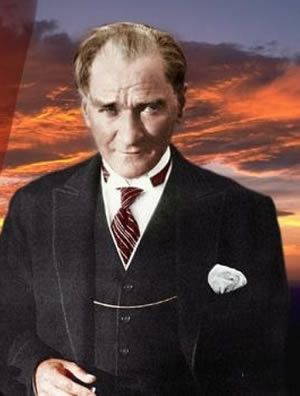
Ataturk
Mustafa Kemal Atatürk was the founder of the modern Republic of Turkey.
♦Kemal said that men and women must be equal in a modern nation. He ordered that girls be allowed to attend school. Kemal also gave women the right to vote and take business and government jobs.
♦He set aside religious law and established a Western system of justice. Islamic Shariah law governed Turkey until Kemal established a legal structure similar to European nations. He forbade men from taking more than one wife, although the practice of polygamy is allowed by the Quran.
♦The Turkish President encouraged modern Western-style clothing and fezzes, veils, or other traditional Turkish clothing. The fez is a tasseled, cone-shaped traditional hat. Many Muslims men wore fezzes so they could touch their forehead to the ground when they prayed. “The people of the Turkish republic,” Kemal said in 1919, “must prove that they are civilized by the way they appear.” And that, he explained, meant boots and shoes, trousers, shirt, and tie, jacket and vest. “And to complete these, a cover with a brim on our heads. I want to make this clear. This head covering is called a hat.” Turks who continued to wear traditional clothing were arrested and imprisoned.
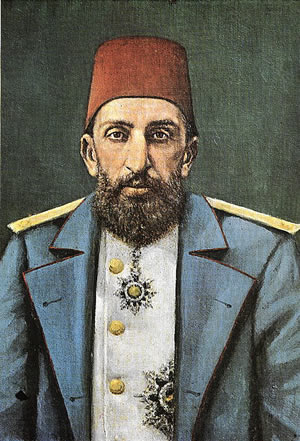
Abdul_Hamid_II
Abdul Hamid II was the 34th Sultan of the Ottoman Empire and the last to have absolute power. He left power after a 1909 military revolt known as the Young Turk Revolution.
♦Kenmal introduced a Western alphabet and ordered all newspapers, books, and street signs to be printed in the new script. The Turkish leader believed the difficulty of the Arabic script led to illiteracy in Turkey and was difficult for merchants and traders from other nations to learn. He traveled the Turkish countryside with a blackboard and chalk to personally explain how the letters should be pronounced. Many of the people Ataturk personally taught had never before held a pencil or a piece of chalk.
♦He decreed that everyone must have a surname, or family name. In 1934, the Turkish assembly gave Mustafa Kemal the name Ataturk, or “Father of the Turks.”

Ataturk-Airport
Ataturk is Turkey's national hero. Ataturk Airport was one of the busiest in the world.
Ataturk was extremely popular, so most Turks accepted his changes. Some Turks disagreed because Ataturk’s changes created a more secular, or non-religious society.
It didn’t matter if people disagreed with Ataturk. The Turkish leader allowed only one political party and did not permit people to disagree with his policies openly. Ataturk died in 1938, but he is considered a national hero to this day.
Resources
Download this lesson as Microsoft Word file or as an Adobe Acrobat file.
Mr. Donn has an excellent website that includes a section on the Middle East and North Africa.
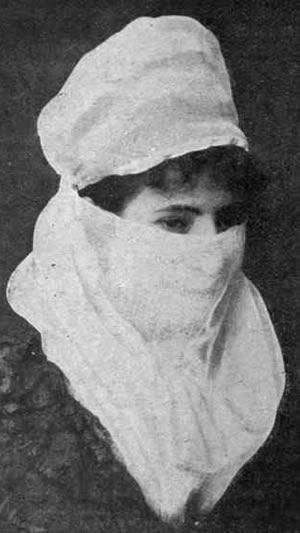
Turkish-veil
A Turkish veil, also called a yashmak, was once used by some Muslim women to cover their faces in public. Today there is almost no usage of this Islamic garment in Turkey.

